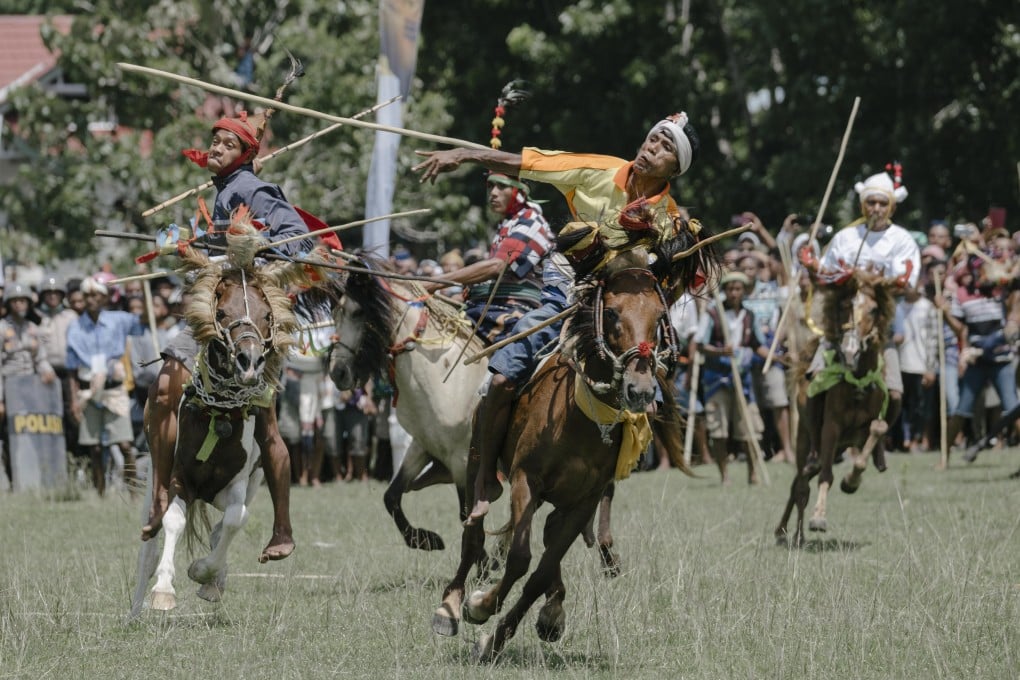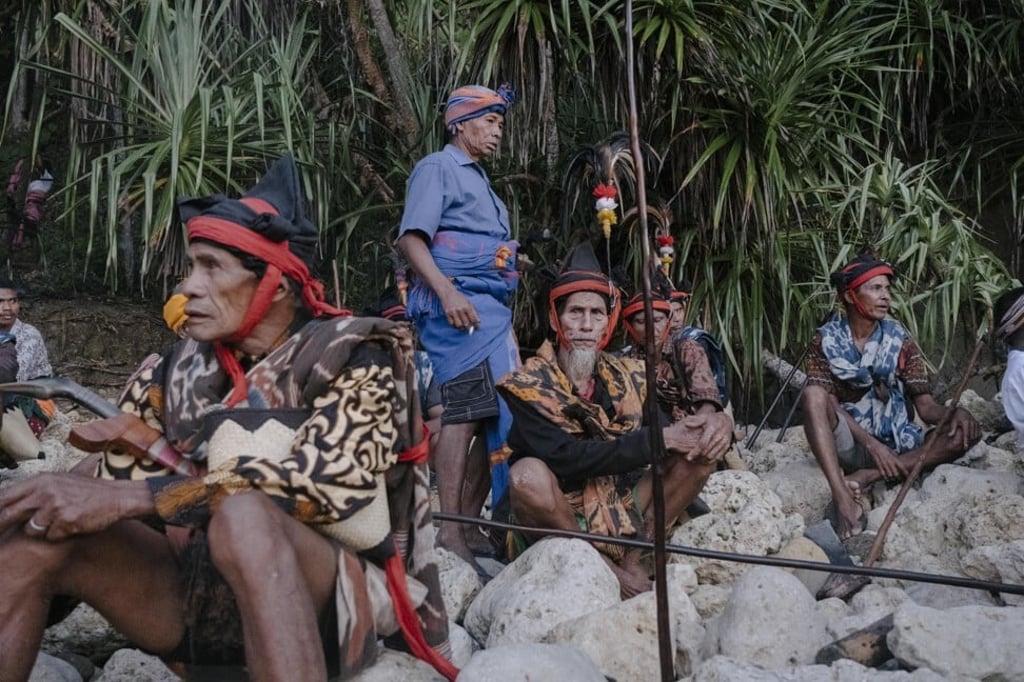The spearmen of Sumba: inside the Pasola, Indonesia’s brutal equestrian war games
Practised by the Marapu people for thousands of years, the ritual games begin with the annual arrival of sea worms, and see participants throw blunt spears directly at each other, often injuring and sometimes killing their opponents

Thousands of people have travelled from near and far, by motorcycle and pickup truck, to Kodi village field, in the Waingapu district of Sumba, a small island in eastern Indonesia. Here, more than 50 horsemen, each armed with four spears, are arrayed in two teams on either side of a sparsely grassed area for an equestrian war ceremony known as Pasola.
This ancient tradition is repeated each spring in the remote villages of Kodi, Wanukaka, Lamboya and Gaura, and involves men on horseback hurling long wooden spears at each other. The name comes from the local word for spear, sola or hola, with the prefix pa changing the meaning to “game” – and although not so deadly today as it once was, it remains a dangerous one.
Performed mainly by descendants of the Marapu people, the ritual battle is animist in origin. It has traditionally been heralded by the annual appearance of nyale sea worms, manifestations of an eponymous local goddess, thought to augur a fruitful year ahead.
Once the spear-throwing begins, it is an incremental affair rather than a cavalry charge: a fighter from one side spurs his horse and throws a spear directly at an opponent’s body while spectators cheer him on with cries of “Kill him!”
Although these days blunted, the spears remain dangerous. Fighters have lost eyes, had their mouths torn open, and even been killed outright. Rather than a short-cut to paradise, locals believe death or injury during Pasola is a form of divine punishment for past mistakes.
Ancestral rules decree there shall be no grudges held after this ritual battle. The inevitable spilled blood of humans and horses, but now more often of sacrificial pigs, dogs and chickens, is believed to fertilise the soil, and ensure a good harvest to come for the village.
